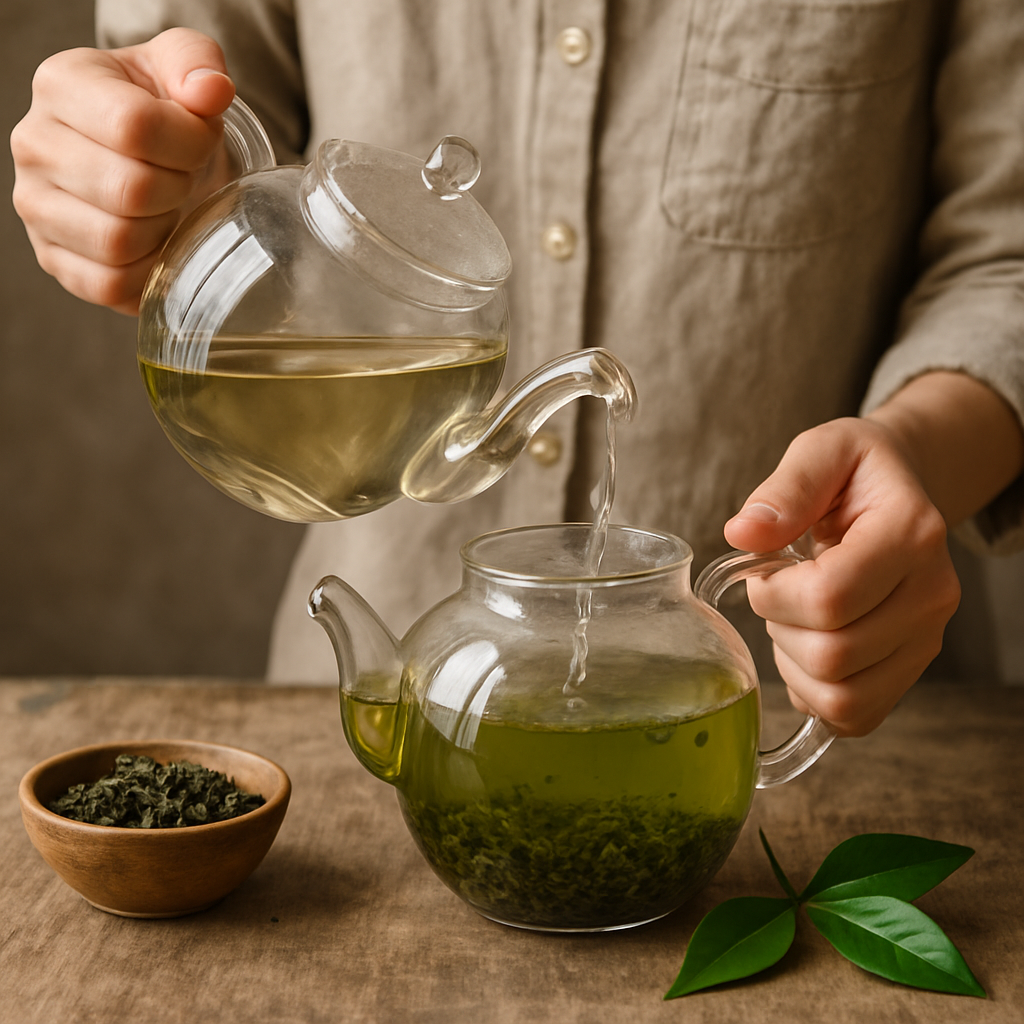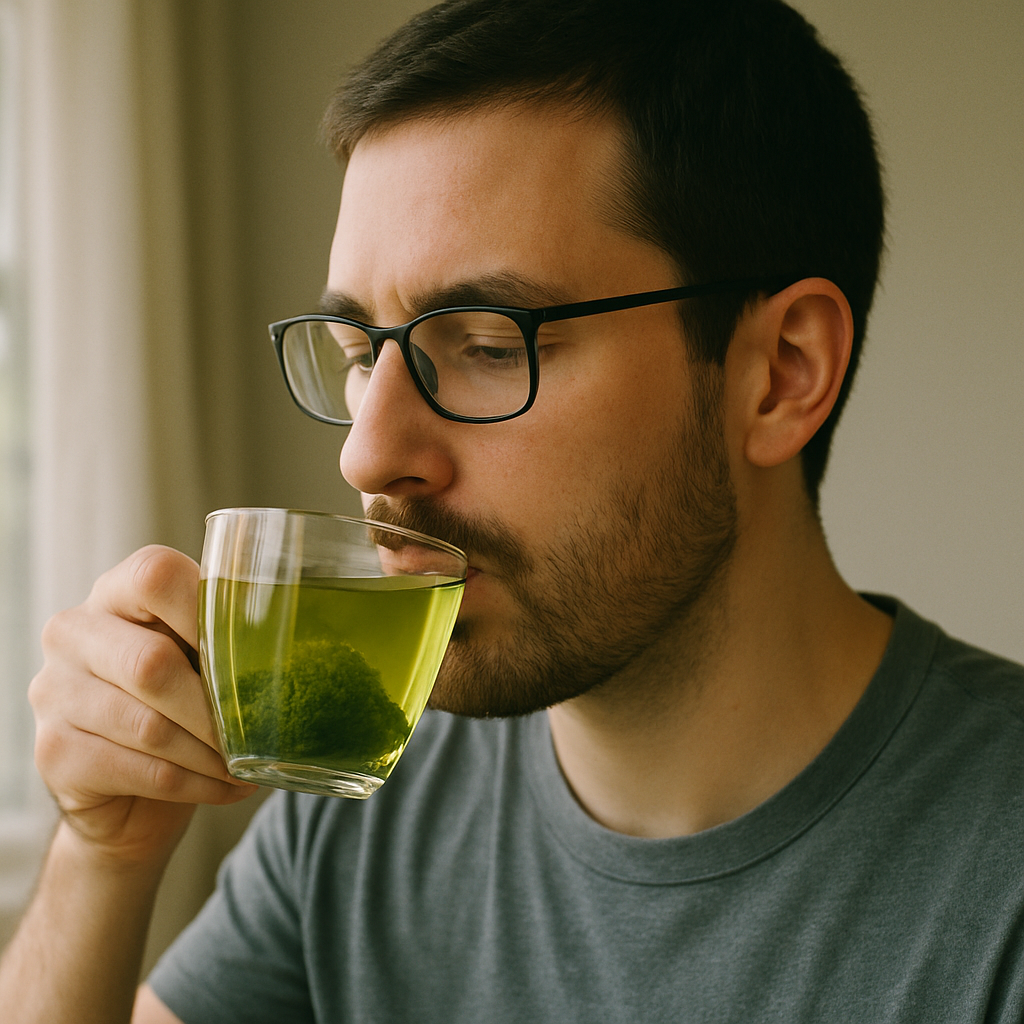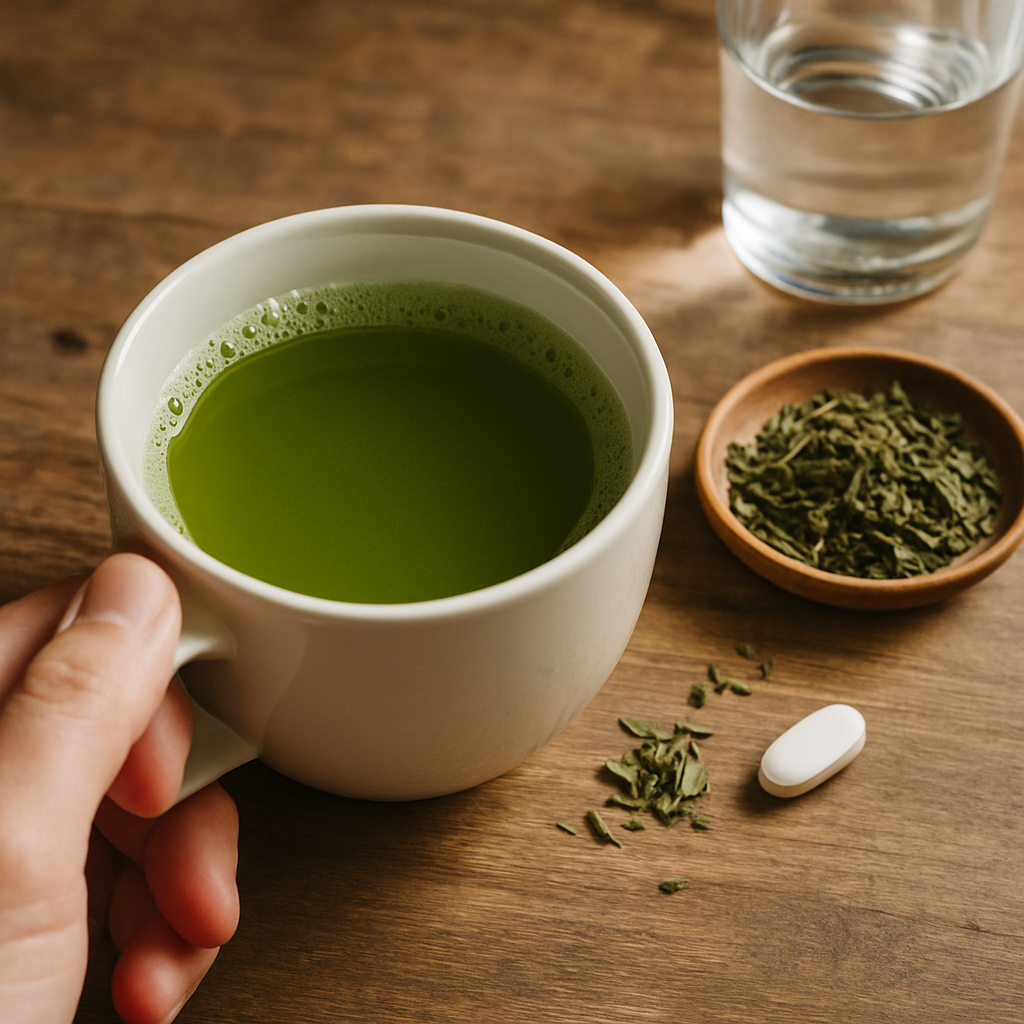Ask Ayurvedic doctor a question and get a consultation online on the problem of your concern in a free or paid mode. More than 2,000 experienced doctors work and wait for your questions on our site and help users to solve their health problems every day.
Is Green Tea Good for Health? Benefits, Uses, and Ayurvedic View

Is green tea good for health? Absolutely, and chances are you've already heard that phrase tossed around a dozen times. But why green tea is good for health goes way deeper than just being a low-calorie drink. Green tea is packed with powerful antioxidants, has a light refreshing taste, and has been part of traditional medicine—especially in Asia—for centuries.
In today's world, where everything's about staying fit, aging slower, and avoiding chronic illness, green tea has become more than a trend. It's a lifestyle change. From green tea benefits for skin to green tea for heart health, and even its role in gut and kidney function, this humble brew seems to do it all.
In this article, we’re diving deep into the health benefits of green tea, how and when to drink it, what Ayurveda says, potential side effects of green tea, and how to choose the best green tea for health. Let’s get steepin’.
Why Green Tea Is Good for Health According to Ayurveda
Ayurveda, India’s ancient system of medicine, sees food and drink not just as fuel, but as a source of life energy—or prana. According to Ayurvedic texts, green tea is tridoshic, meaning it balances all three doshas: Vata, Pitta, and Kapha. This makes it ideal for most body types.
What’s unique is that Ayurveda looks at green tea not just for its antioxidants, but for its ability to clear toxins (ama) from the body. This detoxifying effect helps support digestion, metabolism, and even mental clarity.
Another thing Ayurveda appreciates is the natural bitterness of green tea. Bitterness, although not always craved, is considered crucial in balancing the body and stimulating the liver and gallbladder. Which means, yep—you guessed it—green tea is good for health from the Ayurvedic lens, not just the modern scientific one.

Health Benefits of Green Tea for Body and Mind
Green tea is not just a one-trick pony. It brings a whole package of green tea health benefits, from physical well-being to mental balance. It's known to reduce oxidative stress, improve blood circulation, and may even boost brain function. And these aren’t just internet rumors—many of these claims are backed by real research.
Green Tea for Heart, Gut, and Kidney Health
One of the biggest reasons green tea is good for health is its impact on cardiovascular wellness. Studies show that regular green tea drinkers may have a lower risk of heart disease thanks to compounds like catechins that help lower LDL cholesterol and improve blood flow.
Now, onto green tea for gut health. It's gentle on the stomach (when not taken on an empty belly), can support beneficial bacteria, and helps reduce inflammation in the digestive tract.
And let’s not forget green tea for kidney health. While too much tea can stress the kidneys due to oxalates, moderate consumption (1–2 cups a day) has shown promise in supporting kidney function and preventing stone formation. Always important to not go overboard though!
Green Tea for Prostate and Immune Support
Green tea for prostate health? Yep, it's a thing. Some research suggests that certain antioxidants in green tea—particularly EGCG—can support prostate function and may help lower the risk of prostate-related disorders.
It also shines in boosting immunity. With its rich polyphenols and antimicrobial properties, green tea helps the body fight off infection and reduces inflammation. You don’t need to gulp down gallons, but a warm cup or two each day might help keep your immune system humming along nicely.
Green Tea Benefits for Skin and Weight Management
While many people first turn to green tea for energy or digestion, others swear by its beauty perks. Yes—green tea benefits for skin are very real, and honestly, kind of impressive.
Is Green Tea Good for Weight Loss?
Let’s tackle the big one. Is green tea good for weight loss? The short answer is: it can help, but it’s not magic.
Green tea contains compounds like caffeine and EGCG (Epigallocatechin gallate), which are known to boost metabolism slightly and increase fat oxidation. That’s science-speak for helping your body burn more fat. Several studies have shown that drinking green tea regularly—especially before exercise—may help people lose a bit more weight than those who don’t.
But (and this is important), green tea won’t melt the pounds off by itself. If you’re drinking green tea but also living on fries and pizza, don’t expect miracles. Think of it as a supportive buddy, not a miracle worker.
Also, one bonus: green tea calories? Basically none. Which makes it a smart choice for those cutting back.
Green Tea Benefits for Skin Glow
Now let’s talk glow-up. Green tea for skin isn’t just a trendy ingredient in beauty products—it’s got real benefits. The polyphenols in green tea fight free radicals that damage skin cells, and some studies suggest it may slow signs of aging.
People also love it for calming acne. Thanks to its anti-inflammatory and antibacterial properties, applying cooled green tea topically or drinking it regularly may help reduce breakouts. Can you rub green tea on your face? Yep! Just steep a bag, let it cool, and dab it on. (Just patch test first—skin is weird sometimes.)
Oh, and one more trick: using green tea ice cubes under your eyes to reduce puffiness. Works pretty well... most of the time.

Best Time to Drink Green Tea for Maximum Effect
Timing matters. If you want to get the most out of your cup, here’s what to know about the best time to drink green tea:
-
Morning: A great time to jumpstart your metabolism and improve focus. But avoid it on an empty stomach—it can cause nausea in some people (been there).
-
Before meals: Drinking it 30-60 minutes before eating may support digestion and weight loss.
-
Before a workout: A small energy boost and increased fat burning? Count me in.
-
Evening? Eh, maybe skip. Green tea has caffeine—less than coffee, sure, but enough to mess with sleep if you’re sensitive.
So what’s the verdict? Morning or early afternoon is usually your safest bet.
Also, some people ask, “Can I drink green tea with meals?” Technically you can, but tannins in the tea might reduce iron absorption from food. So if you're low on iron, better drink it between meals instead.
Green Tea Side Effects and Who Should Avoid It
Now, before you go all in and stock up on a hundred tea bags, let’s talk about the flip side. Yes, there are side effects of green tea—and while they’re not common for everyone, they’re still worth knowing.
For starters, caffeine. Even though green tea has much less caffeine than coffee, some people are still sensitive to it. That can mean jitters, insomnia, or a racing heart if you overdo it. (Pro tip: don’t drink five cups in a row and then try to nap. It won’t end well.)
Another possible issue: green tea for kidney health might be helpful in small amounts, but in excess, the oxalates in green tea could potentially stress the kidneys or contribute to stone formation. So if you’ve had kidney problems in the past, check with a doctor before making it your daily go-to.
Also, the tannins in green tea may cause nausea on an empty stomach or interfere with iron absorption. If you’re iron deficient, that’s a biggie.
So who should think twice before drinking green tea?
-
Pregnant or breastfeeding women (talk to your doc)
-
People with severe anxiety or insomnia
-
Anyone with a caffeine sensitivity
-
People with iron deficiency or kidney concerns
All that said, for most folks, 1–3 cups a day is totally fine and even beneficial.

How to Choose the Best Green Tea for Health Benefits
So many brands. So many types. How do you pick the best green tea for health?
Here’s what to look for:
-
Loose leaf over bags: Loose leaf usually contains higher-quality tea leaves, which means more nutrients and flavor.
-
Organic: You don’t want pesticides in your health drink.
-
Japanese vs. Chinese: Both are great, but Japanese green teas like Sencha or Matcha often have more antioxidants due to how they’re processed.
-
Freshness: Green tea can lose potency over time. Always check the packaging date.
If you’re just starting out, try a few varieties—Matcha, Gunpowder, or Dragonwell are all great options. Just skip the overly flavored or sweetened versions. You want tea, not a sugar bomb.
Conclusion
So, is green tea good for health? Absolutely—when used wisely. From its ancient Ayurvedic roots to modern science-backed benefits, green tea supports your heart, gut, kidneys, skin, and even your mind.
The key is balance. Enjoy it in moderation, at the right time, and choose quality over quantity. Be mindful of the green tea side effects, and you’re good to go.
Feeling inspired? Brew yourself a fresh cup and share this article with a friend who could use a little wellness boost. And maybe skip that third coffee—go green instead. 🍵
FAQs
Q: Is it okay to drink green tea daily?
A: Yes! For most people, drinking 1–3 cups a day is perfectly fine and can be beneficial. Just avoid drinking it on an empty stomach or right before bed.
Q: Can I rub green tea on my face?
A: Definitely. Green tea is great for the skin. You can use it as a toner, in masks, or even just splash cooled tea directly on your face (after patch testing of course!).
Q: Which green tea is best?
A: The best green tea for health is usually organic, loose-leaf, and minimally processed. Matcha, Sencha, and Dragonwell are popular and highly beneficial options.

